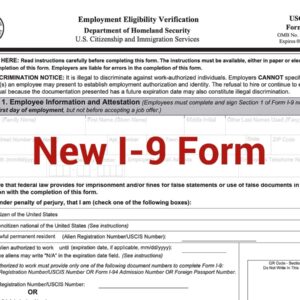Description
This program will cover the changes to the discharge planning standards published February 2020. CMS has yet to publish revised interpretive guidelines and survey procedures to match the new regulations. The regulations apply to all hospitals, including Critical Access Hospitals (CAHs).
This program will discuss the Impact Act and how it affects hospital discharge planning. It requires standardized assessment, quality data, and resource data requirements. It requires hospitals to assist patients with post-discharge care such as home health, skilled nursing facilities, long term care hospitals and inpatient rehab facilities. Patients have freedom of choice and now information on all four must be provided to the patient except for CAHs.
The new regulations cover sections on patient timely access to medical records, the discharge planning process, discharge instructions, discharge planning requirements. It will cover transfers to other facilities, assessment of readmission within 30 days, caregiver rights and recommendations, reduction of factors that lead to preventable readmissions, timely discharge planning, and more.
Discharge Planning Conditions of participation for Critical Access hospitals will be discussed briefly. Those regulations follow the Acute hospitals requirements.
This program will briefly discuss the worksheet previously utilized by surveyors for assessing compliance with the CMS hospital Conditions of Participation for discharge planning. Though the worksheet is no longer utilized, it is available to all facilities and an excellent self-assessment tool.
Every hospital that accepts Medicare and Medicaid must comply with the CMS discharge planning guidelines. These standards must be followed for all patients and not just Medicare or Medicaid. CMS requires several discharge planning policies and procedures so come learn which ones are required and why.
Objectives/Outcomes
- Discuss the CMS has revised the discharge planning requirements that apply to all hospitals and critical access hospitals
- Recall patients and physicians can request a discharge planning evaluation
- Discuss that information about the hospitalization must be provided to the physician or provider before the first post hospital visit
- Describe that the patient has a right to get medical records timely including a copy of their discharge plan
Agenda
- Introduction and Manual
- Deficiency data for discharge planning
- Discharge planning process and the IMPACT Act
- Identification of patients needing discharge planning
- Changes to the CoPs
- Discharge planning evaluation
- Role of support person
- Incapacitated patient
- RN, social worker, or qualified person to develop evaluation
- Timely evaluation
- Discussion of evaluation with patient or individual acting on their behalf
- Discharge evaluation in the medical record
- Documentation of the discharge process
- Discharge plan
- Physician request for discharge planning
- Implementation of the patient’s discharge plan
- Reassessment of the discharge plan
- Freedom of choice for post-acute care providers
- Transfer or referral
- Patient Rights and medical record access
- Critical Access Hospital Discharge planning requirements
- Discharge planning metrics
- Review of Discharge Planning worksheet
- Resources and internet links
Who Should Attend?
- Discharge planners
- Transitional care nurses
- Social workers
- All staff nurses who discharge patients in a hospital setting
- Chief nursing officer
- Nurse educators
- Chief operation officer
- Chief medical officers
- Physicians
- Risk managers
- Regulatory/Compliance officer
- UR nurses
- Joint Commission coordinator
- Chief executive officer
- Nurse managers
- PI director
- Health information director
- Patient safety officer
- Any person serving on a hospital committee to redesign the discharge process to prevent unnecessary readmissions.






